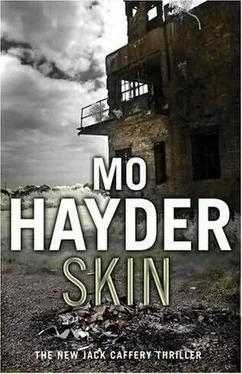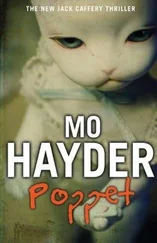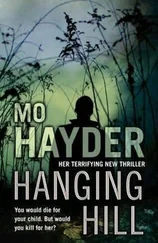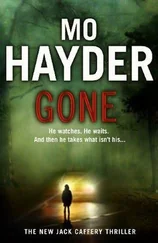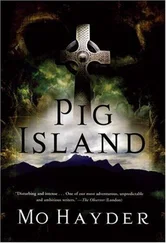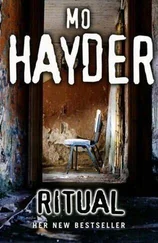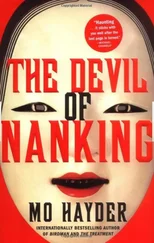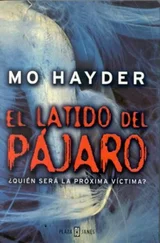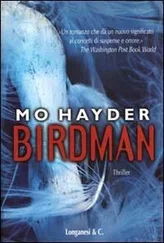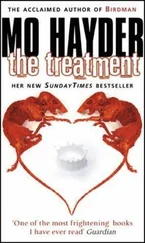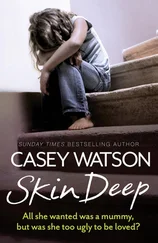What’s happened to the sofa? he thought dimly, as he hit the floor. Why is the sofa on the fucking ceiling?
The bank kept Flea waiting. It was almost two o’clock when she left for Ruth’s, the money stashed in a banded petty-cash envelope in the glove compartment. The weather was patchy, the sun playing tag behind the clouds, but it was warm and she opened the windows in the Clio. The dusty, new-bloom scent of the hedgerow filled the car.
One of the units from Taunton was parked at the junction with the A36, a Lexus and an old Peugeot next to it. She pulled down the sun-visor, drove past calmly, eyes ahead. She was on the sick today and not supposed to be here. Wellard was acting sergeant – he had his instructions: no matter what the inspector told them he was to keep the team to the north of the search area and leave the south until last. Until after five. By which time she’d have the photograph. And have found a way to get Ruth out of the house.
Round the next corner an oncoming motorcycle flashed his lights, jerked his thumb back down the road and sawed his hand across his neck. The sign that there was a hazard, an accident. She slowed as she came round the corner and saw it about quarter of a mile up the road. A traffic car was parked sideways blocking half of the road, a PC in a fluorescent hi-vis jacket in front of it.
Her foot came off the gas and the Clio cruised forward a bit, slowing gradually until it came to a halt. Beyond the traffic BMW she saw her own unit’s Sprinter van parked nose to tail with the coroner’s. Shit. What the hell were they doing here? Wellard had promised .
Her car dawdled for a moment, the PC’s eyes on her face. Before she could gather herself and do a U-turn away, a face appeared from behind the Sprinter, looking at her in mild curiosity. It was Wellard. Eyebrows raised to see her there.
She was had. No getting away. She pulled the car to the side of the road.
‘Hi.’ Wellard put his elbow on the roof and smiled through the window at her. ‘Job-pissed, are we, Sarge? Coming in even though you’re on the sick?’
She turned off the engine and kept her eyes on the steering-wheel. ‘I thought I told you not to come over here until the end of the day.’
‘This job came up. The officer in charge wanted someone quickly. The inspector was cool about it – I didn’t think you’d-’
‘OK. OK.’ She looked past him. Behind the screens a car was parked in the secret little alcove she’d once parked in to walk up to Ruth’s. She could just see its roof. ‘The CSI’s here. What is it?’
‘Suicide.’
‘Past its sell-by? That’s why they’ve got you, is it?’
‘No, it’s recent. Still warm. Like I said, we only took it cos we were in the area.’
The roof of the car was sun-bleached and covered with bird droppings. Seeing it now made something cold walk across her heart. ‘That’s the car I can see, is it?’
‘That’s the car.’
‘A VW?’
Wellard blinked. ‘A VW? Yeah – I mean, yeah, it is. You can tell from here?’
She pressed her fingers into her temples.
‘Sarge – you OK?’
‘I’m… fine.’
She got out of the car, leaving her keys in the ignition, and began to walk, back straight, legs stiff. Flashing her card automatically at the loggist on the cordon, she ducked under it and passed the van. The two coroner’s men stood in their grey suits outside the inner cordon, just as they always did, smoking and chatting in low voices. She went past, not speaking.
The first thing she saw was the body-bag on the road, the orange stretcher next to it in the sunshine. Then she saw her own men gathered around the opened car door, bending to look inside. They glanced up when she approached. Smiled. Called something in greeting. A joke, maybe. She didn’t hear it. She was looking at the place between their legs where she could see a woman’s calf. The foot crammed into a green stiletto. A graze on the ankle. She could see the hem of the short black dress above it. To the right she could see the offside window, moss growing in the seals.
She turned away and stood with her hands pressed into the small of her back. Lifted her face to the sky and breathed in. Out. The sun had broken through the clouds for one last try at warming the world, but she couldn’t see it. She couldn’t see the way it was picking out the different greens of the newly budded trees in the distance, the way it was lighting the distant hills.
What she could see, on that pretty May morning, was the way the sky could suffocate her. The way the sky and the world and all the people in it could push her down so low that eventually they simply stopped her breathing.
Must’ve let it slip a bit on the Scotch last night, Caffery thought. His head was banging like a bastard and any movement sent pressure waves galloping from one ear to the other. He passed a hand across his face, thinking something must be draped over it because the light was so dim. But there was nothing. He reached out in front of him, expecting to feel sheets. Instead he hit something hard and rough. He pushed his hands backwards and behind him met the same hard, immovable barrier.
He lay there, breathing fast. He wasn’t in bed. This was an enclosed space, a vault or a box, about eight foot by eight. Somewhere echoey with a stale, foul smell. About ten feet above him there was a single hazy blob of light.
Think now. Push it.
Vague images came back: a tanner’s awl, blood draped across fabric. He fingered his face. Blood was crusted over his top lip, his nose was tender and a lump had swollen on his gum. He ran his hands over his body. He was dressed, in his suit, but it was crusted and hard on the legs. Behind his knee the flesh was tender, swollen and hot to the touch. He reached a little further down and found a ripped, pulpy area, meat and fabric mixed.
Shit shit shit. He pulled his hands away and dropped his head back, panting hard. The awl. Gerber looking at him calmly. The plate of biscuits. The crack of the handle to his temple. Blood on the sofa.
He fumbled down his torso. The radio was gone. No phone either. No phone, no ASP, no wallet, no CS gas, no Swiss Army knife, no quick-cuffs. All that was left him was his watch. He squinted at it in the gloom. Two thirty p.m. He’d been out for three hours. With his erratic appearances at the office probably no one would even wonder where he was until the end of the day.
His head stopped spinning and the blurred light began to take form and perspective. He tried to listen to what was happening outside. At first he couldn’t pick up anything, just silence and the echo of his own breathing. Then he heard a bird singing and the distant grumble of a tractor. He sniffed again. A pungent, old scent, almost sweet above the tang of blood and his sweat.
And then he knew where he was.
He was in Gerber’s cesspit.
Wincing, he raised himself on to his elbows and squinted around. The pit was empty and probably hadn’t been used for years, but the evidence of its function was still here. He could smell it. The hazy light above him was daylight filtering through the cracks in the access cover – a ladder ran up the side of the wall to it. To its right was a large pipe hung at right angles to the ceiling, the baffles to carry the waste up to the sandbank drainfield. At head height a yellowish layer of grease about a foot deep coated the walls. Caffery lay for a few minutes, ignoring his thumping head, eyeing the cover the way he’d eye up an opponent.
He counted to three, then pushed himself up on to his good leg. Shakily, not putting weight on his right foot, he limped to the ladder and climbed up a few steps. He looped the good leg into the ladder rung, wiped his mouth with the back of his hand and, gritting his teeth, reached up and jammed both hands against the manhole cover. It made a small creaking noise. And stopped. He gave it another shove. Rigid. Another. Nothing.
Читать дальше
